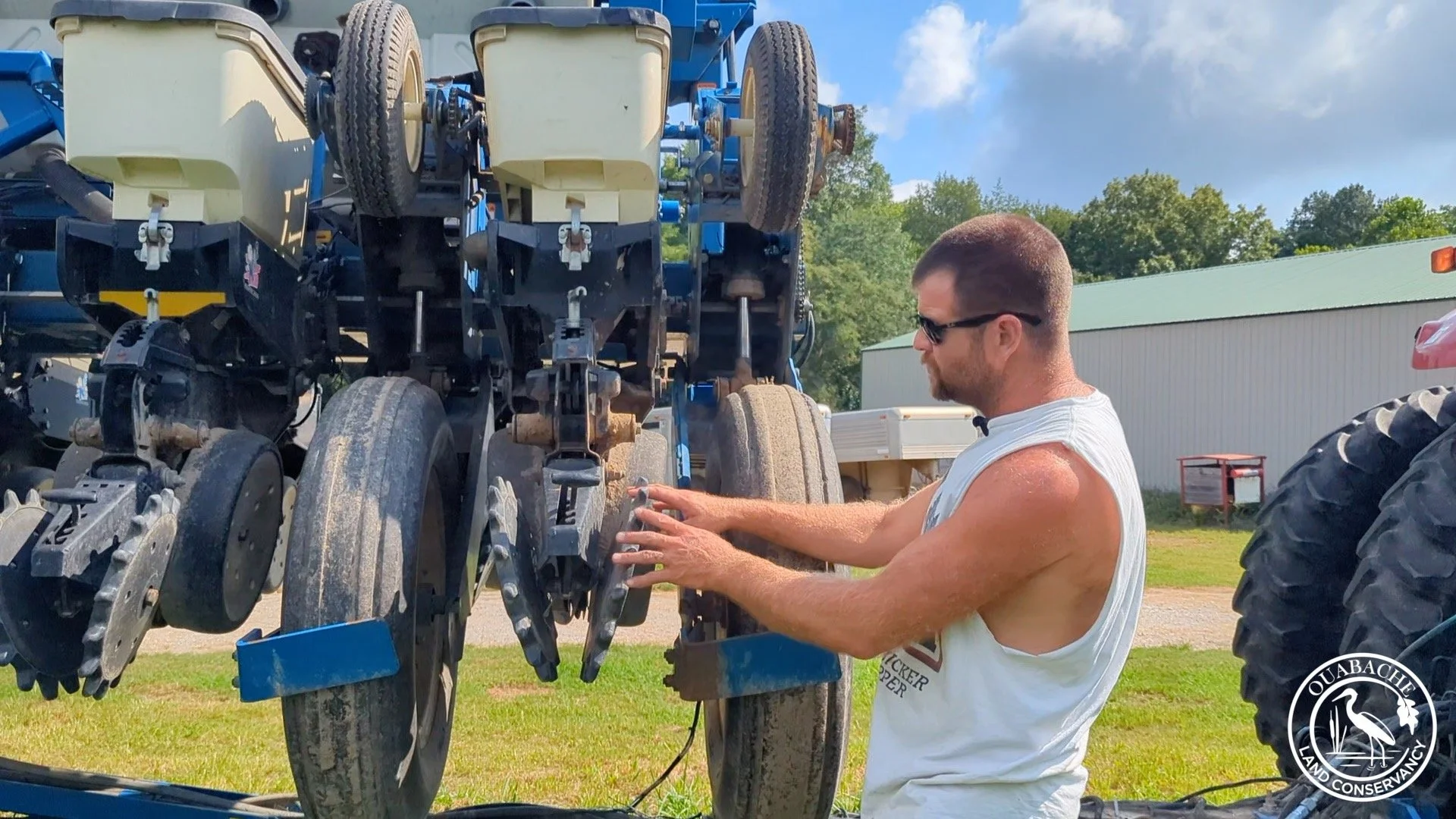In the rolling fields of northern Vigo County, brothers Joe and Chad Koch, along with their father, James W. Koch Jr., are proving that good stewardship of the land and profitable farming can go hand in hand. Operating as Koch Farms, the trio has embraced conservation practices that not only benefit their cattle operation but also protect the soil and improve water quality for the entire community.
About five years ago, Sara Peel approached them with information about the 319 Grant program, a state and federal initiative that helps farmers implement practices to reduce water pollution. The Ouabache Land Conservancy manages the 319 grant for the Otter Creek Watershed. Sara Peel is a contractor for OLC who helps OLC manage the 319 grant program. Initially, the Kochs were interested in planting cover crops for winter grazing. But soon, they realized the benefits went far beyond feeding cattle. “We started doing it for the cattle, but then we saw it was keeping erosion down and building up soil fertility. It just made sense to keep expanding,” Joe Koch said.
Cover Crops: Cattle Feed and Soil Protector
On Koch Farms, cover crops like wheat, and soon rye, serve a dual purpose. During fall, winter, and early spring, cattle graze on the green growth, reducing the need for expensive hay and corn feed. Meanwhile, the plants’ root systems anchor the soil, keeping it from washing away during rain or blowing off the sandy fields.
The benefits are visible on the farm’s hilly terrain, where conventional tillage once left small ditches and bare spots. “Those plants keep the dirt in place. If it washes, you lose fertilizer and have to go back in with equipment to fix the field, which defeats the whole purpose of no-till,” Joe explained.
No-Till Farming: Saving Time, Fuel, and Moisture
The Kochs have been experimenting with no-till methods for more than 25 years, starting with one field near Joe’s home. By reducing the number of times they work the soil, they save on fuel, limit soil disturbance, and preserve valuable moisture in their sandy soils. “Not all ground is suited for no-till, but where it works, it cuts costs and labor. You can’t find as many people to work these days, so you’ve got to do what you can with family,” Joe Koch admitted.
Equipment Upgrades Through the 319 Grant
Through the 319 Grant, Koch Farms has been able to make key equipment upgrades that improved efficiency and crop establishment. The first project involved refurbishing their Case 5400 drill, replacing worn seed hoses, and adding new closing wheels to ensure the seed is adequately covered with soil. “Without dirt over your seed, it won’t grow. Birds will eat it, or it’ll dry out before it germinates. The closing wheels make sure it’s covered and gets a chance to sprout,” Joe Koch explained.
The grant also helped purchase a second planter with spike closing wheels for variable soil conditions and a GPS-enabled fertilizer truck monitor. The latter allows them to spread seed or fertilizer with precision, even in wetter conditions that might bog down a tractor.
Protecting the Watershed
While the upgrades have improved efficiency and profitability for Koch Farms, they also serve a bigger purpose, protecting the local watershed. By keeping soil in place and maintaining year- round plant cover, the Kochs are reducing sediment and nutrient runoff into nearby creeks. “It all comes back to erosion. If your dirt washes away, it’s not just your field that suffers; it ends up in the water we all share,” Joe Koch said.
Looking Ahead
The brothers aren’t planning to convert every acre to no-till and cover crops, but they expand the practice a little each year. With the added soil fertility from cover crops, they’ve been able to reduce fertilizer use in some areas, cutting costs without sacrificing yields. And while Chad may prefer working with grain Joe might be the more outgoing spokesman, the balance works for them. “We’re night and day, but that’s why it works. We each do our part,” Joe Koch laughed.
As they look toward the future, the Kochs say they’ll keep adopting practices that make sense for their operation and for the land they hope to pass down. After all, in farming, good business and good conservation often grow best together.

